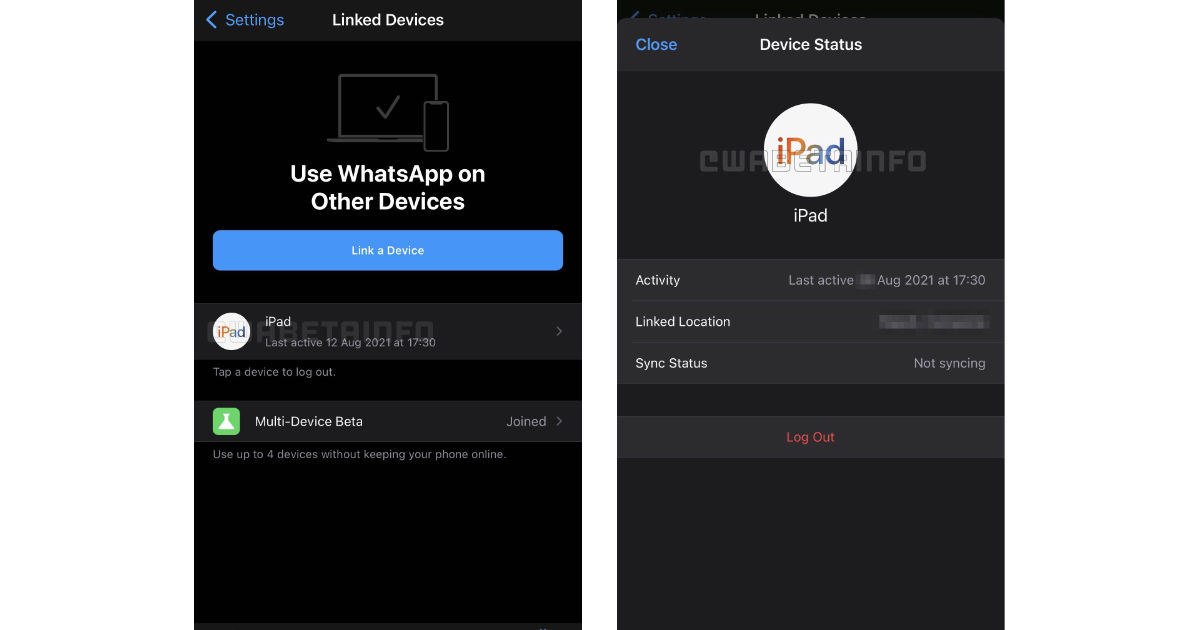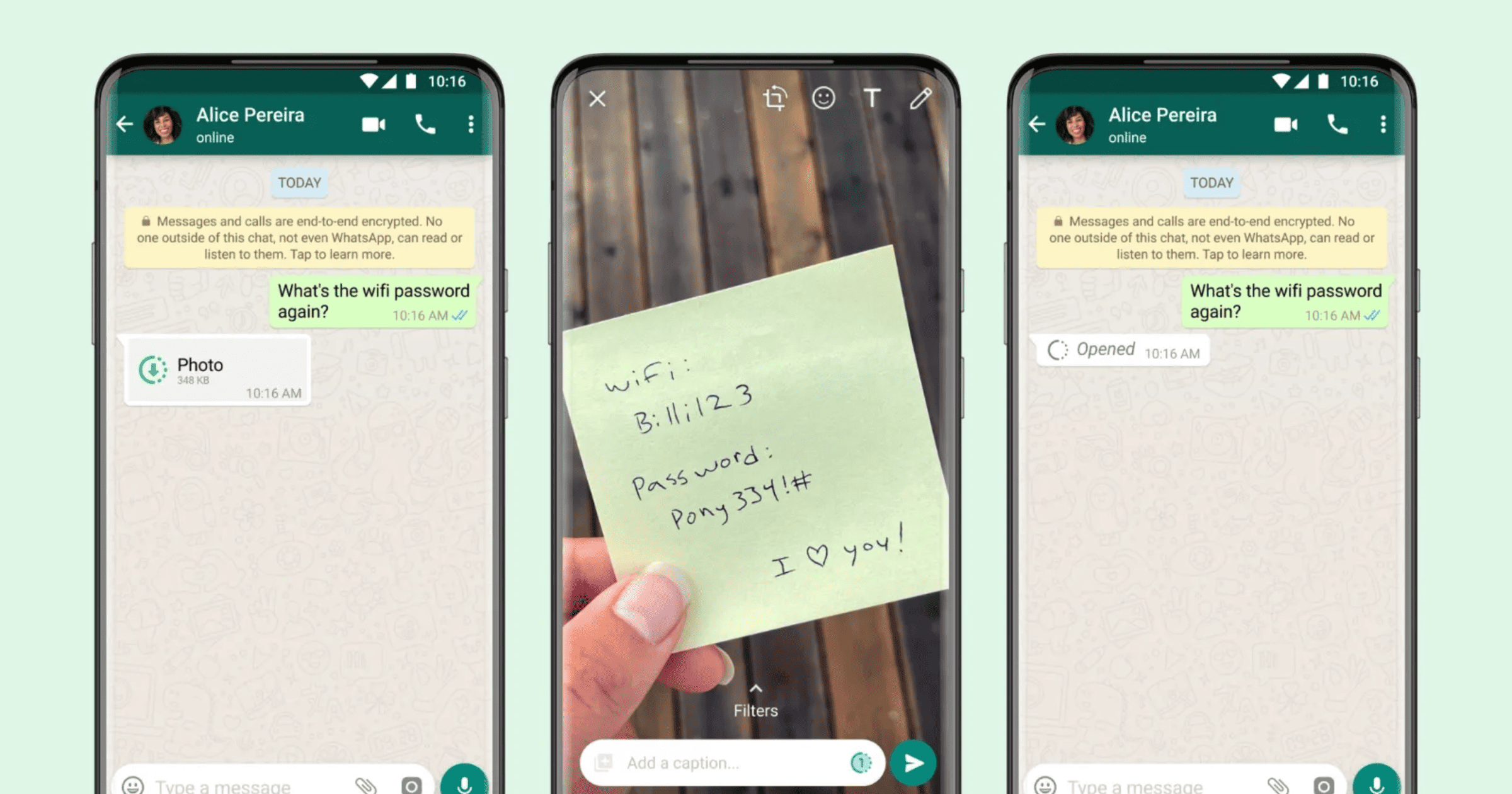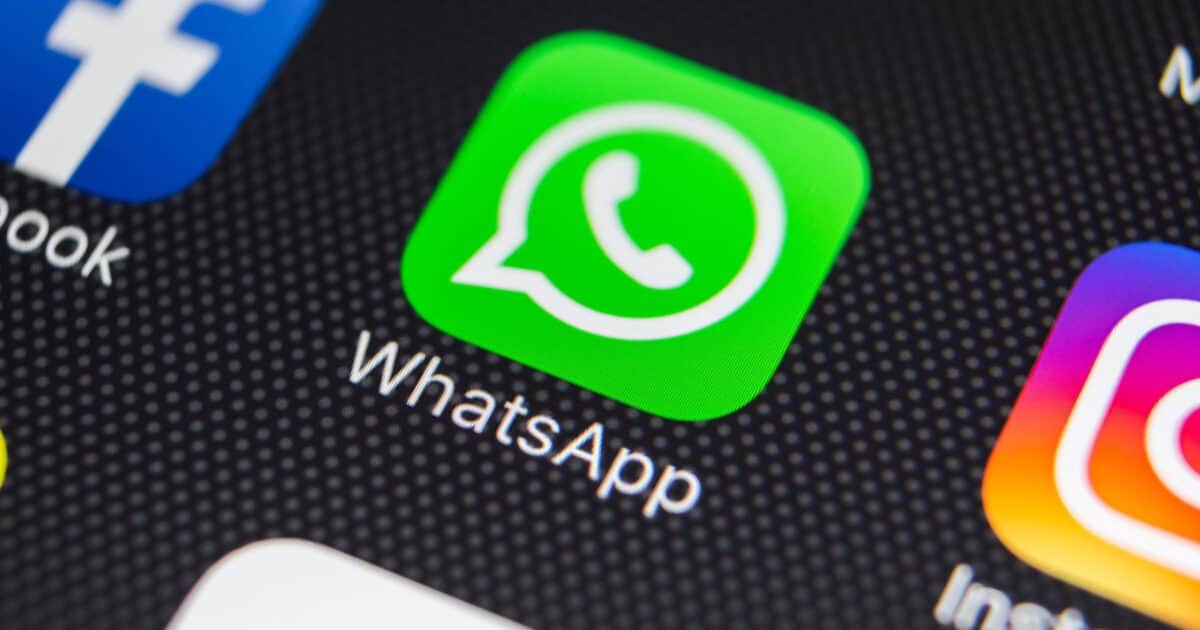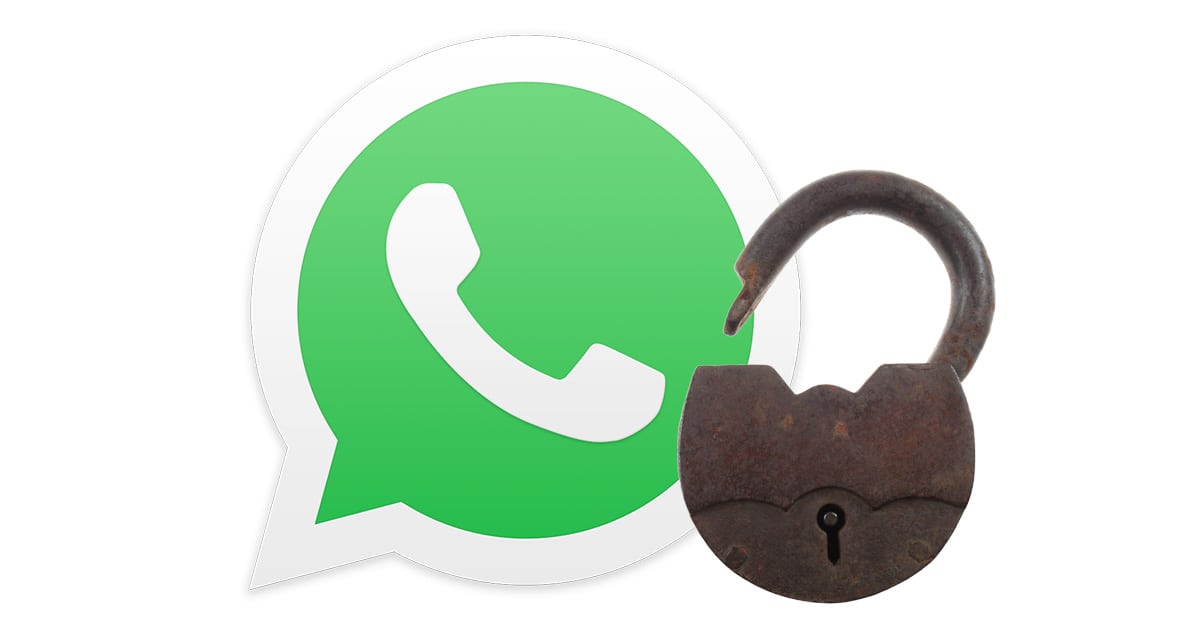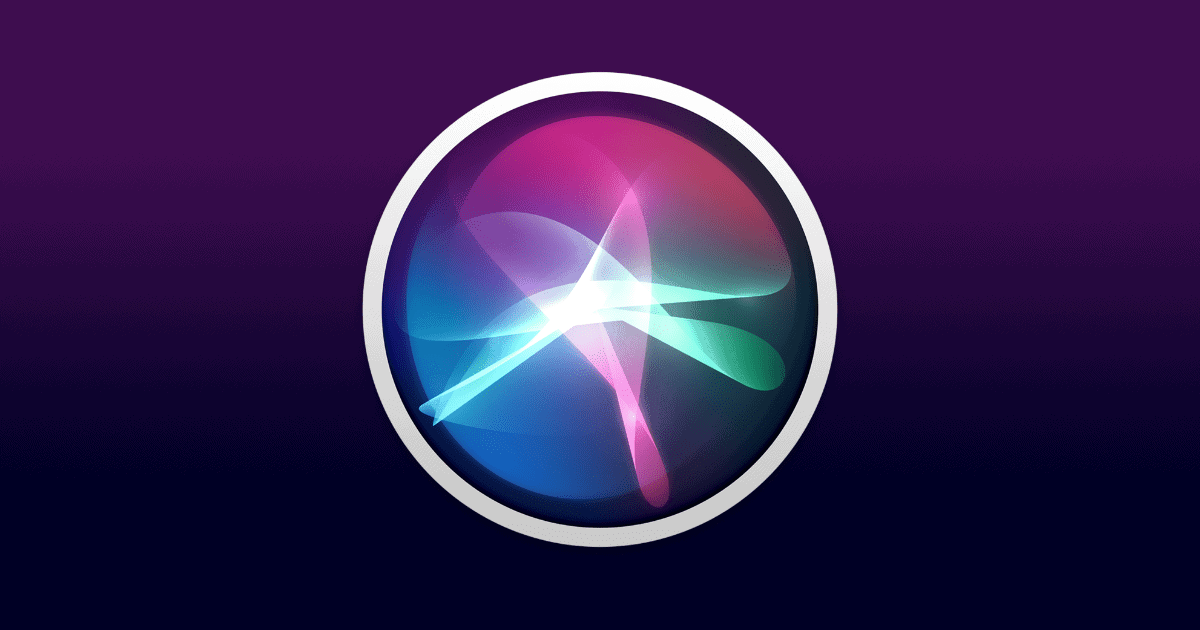A macOS public beta for the private messaging app WhatsApp is available now with features not yet available in the regular public release, and there’s also confirmation of an iPad-native app in the iPhone app code.
WhatsApp One Time View Photos and Videos
WhatsApp began rolling out photos and videos that can only be used on Wednesday. It will become available to all users, according to a blogpost from the Facebook-owned messenger.
On many phones, simply taking a photo means it will take up space in your camera roll forever. That’s why today we’re rolling out new View Once photos and videos that disappear from the chat after they’ve been opened, giving users even more control over their privacy. For example, you might send a View Once photo of some new clothes you’re trying on at a store, a quick reaction to a moment in time, or something sensitive like a Wi-Fi password. As with all the personal messages you send on WhatsApp, View Once media is protected by end-to-end encryption so WhatsApp cannot see them. They will also be clearly marked with a new “one-time” icon.
WhatsApp Content Moderator - ‘I Sold My Soul.’
WhatsApp content moderators have to review some of the most disturbing content floating around the internet. Time spoke to some of them about the lack of support and their allegations of pay discrimination.
Content moderators working at Accenture for WhatsApp are entitled to 30 minutes of “wellness” breaks per eight-hour shift, employees say, as well as one-on-one access once a month to “wellness coaches” provided by the company. They also undergo training to prepare them for the kinds of content they are expected to look at on the job. But even Accenture acknowledges that the help these resources provide is limited. Moderators working on a Facebook contract for Accenture in Europe were required to sign a document in January 2020 acknowledging “that the wellness coach is not a medical doctor and cannot diagnose or treat mental health disorders.” TIME viewed a copy of the document, which was first reported by the Financial Times. It requires employees to acknowledge that “the weCare Program [wellness] services, standing alone, may not be able to prevent my work from affecting my mental health.” It also notes that the work “could even lead to Post Traumatic Stress Disorder.” (Facebook told the Financial Times it did not review or approve the document, and was not aware of it.)
Let WhatsApp Harvest Your Data or It Will Restrict Your Account
Facebook-owned WhatsApp has a controversial new privacy policy that says it will share your data with Facebook companies.
WhatsApp Introducing Face or Touch ID When Linking to Web/Desktop
WhatsApp has started to roll out a new security feature that will require Touch or Face ID when linking devices via web and desktop app.
Signal Signups Surge After WhatsApp Controversy And Elon Musk Tweets
Encrypted messaging app Signal is seeing a surge in signups, The Verge reported. It seems to come on the back of supportive tweets from Tesla chief Elon Musk and controversy around WhatsApp mandating users to share data with its parent company, Facebook.
But what’s happening now appears to be a bit of context collapse on social media, as WhatsApp users think they’re now being forced to share data with Facebook even though that’s been happening all along if they didn’t opt out back in 2016. None of this is helped by Facebook and WhatsApp’s recent attacks on Apple for the iPhone maker’s decision to mandate new self-reported labels on iOS apps and its future plans to force app makers to request permission to track Apple device owners. The new privacy policy notice doesn’t help Facebook’s cause, either, considering it tells users displeased with the changes — which, again, are about how businesses manage their chats on WhatsApp using Facebook’s backend — to “delete their account,” with no other remedies provided.
FTC, 48 States Sue to Break up Facebook Over Monopoly Accusation
The Federal Trade Commission as well as 48 attorneys general have filed two lawsuits against Facebook on Wednesday.
Ahead of Apple’s ATT, WhatsApp Explains its Privacy Labels
Ahead of the upcoming iOS 14 App Tracking Transparency feature, Facebook-owned WhatsApp explains the privacy labels people will see on its App Store page. The app will collect contact information like your phone number, your (optional) email address, contacts, financial information to use certain features, shopping activity like product browsing and purchasing data, your IP address, general location, usage data, and diagnostics.
With end-to-end encryption, messages are not stored on our servers after they’re delivered, and in the normal course of operating our services we do not retain a record of the people you may message.
WhatsApp Users Can Now Send Disappearing Messages
WhatsApp finally gave users the ability to send that message that disappear after a certain period of time. As The Guardian noted, it’s something of a shift for the Facebook-owned app.
Unlike some competitors, such as the secure messaging app Signal, WhatsApp, which is owned by Facebook, decided against offering flexibility to users. There is no option to change the length of time messages are stored, for instance; and the service also removes images and videos sent. “We’re starting with seven days because we think it offers peace of mind that conversations aren’t permanent, while remaining practical so you don’t forget what you were chatting about,” the company says in a blogpost. “The shopping list or store address you received a few days ago will be there while you need it, and then disappear after you don’t. “While it’s great to hold on to memories from friends and family, most of what we send doesn’t need to be everlasting. Our goal is to make conversations on WhatsApp feel as close to in-person as possible, which means they shouldn’t have to stick around forever.”
Here Are 6 Privacy Reasons You Should Delete WhatsApp
Sebastian Meineck shares six privacy reasons people should delete Facebook-owned WhatsApp from their devices.
But WhatsApp also has its flaws. On closer inspection, user privacy and data protection are no longer its priority, and plans to merge it with other Facebook-owned services like Facebook Messenger and Instagram DMs are concerning.
Signal is a good open-source private messenger to use instead.
WhatsApp Linking to Web To Stop Spread of Misinformation
WhatsApp began to pilot a magnifying glass button in chats which guides users to search for information in forwarded messages.
Google Search Reveals Private WhatsApp Groups
Google indexes links to WhatsApp group invites that may be private, meaning people can find and join them.
Motherboard used a number of specific Google searches to find invite links to WhatsApp groups. Some of the groups appear to not be overly sensitive or for a particular audience. Many of the links on Google lead to groups for sharing porn.
But others appear to be catered to specific groups. Motherboard entered one WhatsApp group chat that described itself as being for NGOs accredited by the United Nations. After joining, Motherboard was able to see a list of all 48 participants and their phone numbers.
Security Friday! – TMO Daily Observations 2020-02-07
Andrew Orr joins host Kelly Guimont to discuss the latest security headlines and some tips for avoiding malware and viruses on your Mac.
WhatsApp Security Flaw Found on Desktop Version
A flaw found in the desktop version of WhatsApp lets third-parties access your file system on macOS and Windows.
Changing Apple Hiring, More Phone Hack Info – TMO Daily Observations 2020-01-27
Charlotte Henry and John Martellaro join host Kelly Guimont to discuss Apple’s new hiring page and the new info about Jeff Bezos’ iPhone.
Facebook Exec Sir Nick Clegg Claims WhatsApp is Unhackable
Top Facebook executive Sir Nick Clegg has come under criticism for denying that Amazon boss Jeff Bezos was hacked via WhatsApp.
Military and Government Officials From U.S. Allies Victims of WhatsApp Hack
WhatsApp was hacked to take over the phones of senior government and military officials in countries allied to the U.S.
Siri Will Work Better With Third-Party Messaging Apps
Apple said that later this year an iOS update will enable Siri to work better with third-party messaging apps. If you use the assistant to send messages, it will default to whatever message you use the most, instead of defaulting to iMessage or Phone. You can currently use third-party apps with Siri but you have to specify “Send this message via WhatsApp.”
For example, if an iPhone user always messages another person via WhatsApp, Siri will automatically launch WhatsApp, rather than iMessage. It will decide which service to use based on interactions with specific contacts. Developers will need to enable the new Siri functionality in their apps. This will be expanded later to phone apps for calls as well.
WhatsApp's 'Delete For Everyone' Feature Doesn't Work With iPhones
WhatsApp from Facebook has a feature called Delete for Everyone that lets people unsend messages, photos, and videos from an individual’s phone, or everyone in a group. But it doesn’t delete them from iPhones.
According to Shitesh Sachan, an application security consultant, who found this privacy issue and shared his findings exclusively with The Hacker News, the feature for WhatsApp for iOS has not been designed to delete received media files saved in the iPhone’s Camera Roll.
iOS 13 VoIP Rules Affects Facebook and Other Apps
New iOS 13 VoIP rules will affect how WhatsApp, Facebook Messenger, and other messaging apps work to protect customer privacy.
Facebook Rebrands Instagram and WhatsApp
Mad over Facebook’s terrible reputation, Mark Zuckerberg wants to rebrand Instagram and WhatsApp to make it clear who owns them.
Facebook Plans Don't Include End-to-End Encryption
Unsurprisingly, Facebook’s messaging apps won’t have true end-to-end encryption, with messages scanned before being encrypted.
In Facebook’s vision, the actual end-to-end encryption client itself such as WhatsApp will include embedded content moderation and blacklist filtering algorithms. These algorithms will be continually updated from a central cloud service, but will run locally on the user’s device, scanning each cleartext message before it is sent and each encrypted message after it is decrypted.
The company even noted that when it detects violations it will need to quietly stream a copy of the formerly encrypted content back to its central servers to analyze further, even if the user objects, acting as true wiretapping service.
Unlike Forbes‘ clickbait headline, the “encryption debate” certainly isn’t over or dead. Now it’s about trying to convince the government that encryption backdoors don’t work. There are also plenty of Facebook alternatives.
GCHQ Officials' Encryption-Bypassing Idea Criticised in Letter Signed by Apple
Apple, Google, Microsoft, and WhatsApp signed an open letter criticizing proposals to bypass encryption made by GCHQ officials.
